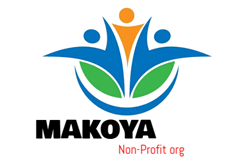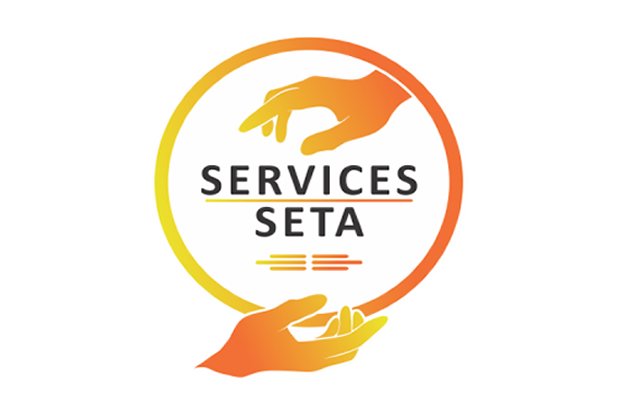
Applications for Unemployed for Upcoming Opportunities
The South African job market often feels tough. Yet, many new chances are showing up for people without work. Getting a job needs a smart plan. You must know what jobs are popular and how to show your best skills. This article helps unemployed South Africans find these new jobs. It also gives real steps to boost your chances.
New studies point to a rising need in tech, green energy, and health jobs. This offers real hope for those searching for work. Knowing where these jobs are and how to stand out is key. This guide makes the job search clearer. It helps people grab these good chances.
Understanding the Current South African Job Market
South Africa’s job scene is always shifting. Knowing the big picture helps you search better. We see new trends and growth in certain areas. This section will walk you through what’s happening now.
Key Industries with Growing Demand
Some parts of the economy are hiring a lot. These areas keep growing. Focusing your search here can pay off big time. Here are some of the sectors looking for new talent.
Technology and Digital Skills
The need for tech experts keeps rising. Businesses want IT pros, software builders, and data people. Cyber safety experts are in high demand too. Knowing coding languages like Python or JavaScript helps a lot. Digital marketing jobs are also booming as companies move online.
Renewable Energy and Green Jobs
South Africa is investing in clean power. This means more jobs in solar, wind, and other green projects. You can find roles for technicians, engineers, and project managers. Many jobs involve installing solar panels or maintaining wind farms. This sector is truly expanding fast.
Healthcare and Essential Services
Healthcare always needs skilled workers. Nurses, doctors, and other health pros are in demand. Caregivers and support staff are also needed, especially with new health efforts. Public and private hospitals often have open positions. Keep an eye on these vital services.
Economic Factors Influencing Employment
South Africa’s economy plays a role in job growth. While some things are hard, new opportunities still emerge. These factors shape where jobs appear.
Government Initiatives and Skills Development Programs
The government runs programs to help people find work. They also fund training to teach new skills. Look for programs from SETAs (Sector Education and Training Authorities). These efforts aim to cut joblessness and build a stronger workforce. Many offer free training.
Impact of Global Trends on Local Job Creation
Big changes worldwide also create local jobs. New tech from other countries can open up fresh roles here. For example, remote work became normal globally. This opened up digital jobs in South Africa that did not exist before. Staying aware of world trends can show you where new work is heading.
Useful Links:
Identifying and Accessing Upcoming Job Opportunities
Finding jobs is the first step. You need to know where to look. Many paths exist, from online sites to talking to people. This part gives you real tips to find open positions.
Leveraging Online Job Portals and Platforms
The internet is a powerful tool for job hunting. Many good South African sites list jobs. Global platforms also have many local openings. You can search by job title, industry, or location.
Popular South African Job Boards
Start with sites like PNet and CareerJunction. They are very popular for jobs in South Africa. MyJobMag also lists many openings. Don’t forget LinkedIn; it’s big here for professional roles. These sites update often.
International Platforms with Local Listings
Global sites also offer good finds. Indeed and Glassdoor have many South African jobs. Monster is another one to check. These platforms connect you with international companies hiring locally. Make sure to set your location for accurate results.
Networking and Informational Interviews
Talking to people helps a lot. Building connections can open doors you did not know existed. People often hear about jobs before they are public.
Building a Professional Network (Online and Offline)
Go to industry events if you can. Join professional groups online, like on LinkedIn. Talk to people in your field. Share your goals. You never know who might know about a job. Connecting with others broadens your reach.
The Value of Informational Interviews
An informational interview means talking to someone about their job. You ask them questions, not for a job. This helps you learn about companies and roles. It also helps you meet people. They might remember you later when a job opens.
Direct Applications and Company Websites
Sometimes the best way is to go straight to the company. Many businesses post jobs only on their own sites. This shows you are serious about working for them.
Identifying Companies with Openings
Look up companies in the growing job sectors. Check their “careers” or “jobs” page regularly. Big companies often have many openings. This direct approach can sometimes get you noticed faster.
Tailoring Applications for Direct Submissions
When applying directly, make your resume and cover letter special. Show them you know their company. Use words from their job ad. This tells them you are a good fit.
Preparing Your Application: Resumes and Cover Letters
- Your application papers are your first impression.
- APPLICATION FORM
- A good resume and cover letter can get you an interview.
- They show what you can do.
Crafting a Powerful Resume
Your resume tells your work story. It should be clear and easy to read. Make it strong for South African job market expectations.
Key Resume Sections and Content
Start with your name and contact info. Write a short summary of your skills or job goal. List your work history with achievements, not just duties. Use numbers to show what you did. Include your education and skills. You can add references later.
Tailoring Your Resume for Each Application
Don’t use the same resume for every job. Change it a bit for each opening. Highlight skills and experiences that fit what the job asks for. This makes your resume stand out. It shows you read the job description.
Writing a Compelling Cover Letter
A cover letter explains why you are perfect for the job. It works with your resume. Make it show your interest and skills.
Structure of an Effective Cover Letter
Begin by saying what job you want and why. In the middle, give examples of your skills. Tell them how you can help their company. End by saying you are keen to talk more. Always ask for an interview.
Personalizing Your Cover Letter
Show you know about the company. Talk about their work or goals. Explain why you want this job, not just any job. A personal touch makes your letter strong.
Developing In-Demand Skills for Future Employment
The job world changes all the time. Learning new things keeps you ahead. It helps you stay ready for new jobs.
Identifying Skill Gaps and Training Opportunities
Look at what skills jobs ask for. Then look at what you know. Find areas where you can learn more. Many ways exist to get new training.
Online Learning Platforms and Certifications
Websites like Coursera, edX, and Udemy offer great courses. You can learn tech skills, business basics, or other job-ready skills. Many offer certificates to prove what you learned. These are a good way to boost your resume.
Government and NGO Skills Development Initiatives
Many groups offer free or cheap training. Government programs and NGOs (Non-Governmental Organizations) help people get job-specific skills. Search for programs from SETAs again. They often train for jobs in high-growth areas.
Soft Skills: The Crucial Differentiator
Soft skills are important too. They are not technical skills. They help you work well with others. Employers really value them.
Communication, Teamwork, and Problem-Solving
Good communication means speaking and listening well. Teamwork helps you work with others. Problem-solving means you can fix issues. Practice these skills in your daily life. Show them in your job answers.
Adaptability and Continuous Learning
Jobs change fast. Being able to adapt means you handle new tasks easily. Showing you love to learn is also key. This tells employers you can keep up with new challenges.
The Application and Interview Process
You have your documents ready. Now comes applying and interviewing. These steps can feel tricky. Knowing what to expect makes it easier.
Navigating Online Application Systems
Many companies use special systems to collect applications. These are called Applicant Tracking Systems, or ATS. They scan your resume for keywords.
Keywords and ATS Optimization
Read the job ad closely. Find important words or phrases. Put these words into your resume and cover letter. This helps the ATS pick your application. It increases your chance of being seen by a person.
Common Pitfalls in Online Applications
Do not send generic papers. Make sure you fill in all fields. Double-check for typing errors. A rushed application might get missed. Take your time to get it right.
Excelling in Job Interviews
Getting an interview is a big win. It is your chance to shine. Good prep helps you do your best.
Researching the Company and Interviewers
Learn about the company before your interview. Know what they do and what they care about. Look up your interviewers on LinkedIn. This helps you connect with them.
Behavioral and Situational Interview Questions
Interviewers will ask about past work. They want to know how you acted. They might ask, “Tell me about a time you solved a hard problem.” Think of examples from your past. Tell a clear story.
Asking Insightful Questions
At the end, they will ask if you have questions. Always ask some. This shows you are keen and thought about the role. Ask about the team, the job, or the company culture.
Conclusion: Seizing Opportunities and Building Your Career
Finding a job in South Africa can be a journey. But with the right steps, you can find success. Many new opportunities are waiting for you.
Key Takeaways for Unemployed South Africans
Remember to look for jobs actively. Keep learning new skills. Make your application stand out. The job search is a process. Keep pushing forward.
Building a Sustainable Career Path
Think beyond just getting your next job. Plan for your future work life. What skills will you need in five years? How can you keep growing? A long-term view helps you build a strong path.
Actionable Next Steps
Start today. Update your resume. Look into those online training courses. Connect with people in your target industry. Every small step helps you get closer to your next job. Your hard work can open new doors.




